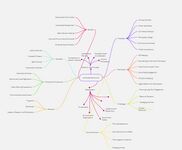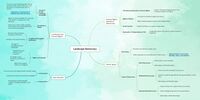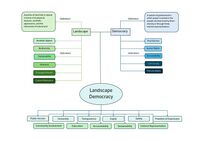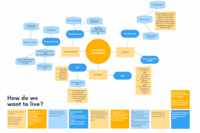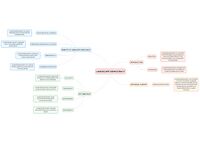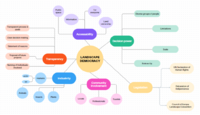Democratic Landscape Transformation 2024 - Team 15: Difference between revisions
| (23 intermediate revisions by 2 users not shown) | |||
| Line 12: | Line 12: | ||
*Stefano Albarracin: Building engineering - Architecture student at UniBo (Bologna, Italy). Originally from Ecuador, I grew up in Rimini, Italy where I studied in an Insitute for surveyors during my high school years. | *Stefano Albarracin: Building engineering - Architecture student at UniBo (Bologna, Italy). Originally from Ecuador, I grew up in Rimini, Italy where I studied in an Insitute for surveyors during my high school years. | ||
*Shabnam Eshghi: Landscape architecture master student at HSWT (Freising, Germany). My background is architecture engineering. | *Shabnam Eshghi: Landscape architecture master student at HSWT (Freising, Germany). My background is architecture engineering. | ||
*Victoria Schwarzer: Currently studying International Master of Landscape Architecture at HSWT (Freising, Germany). Bachelor of Landscape Architecture, my thesis touched the subject of right to land and the right of humans to alter landscape, as well as our possibilities to improve the living landscape by planning. | |||
==Your Landscape Democracy Manifestoes== | ==Your Landscape Democracy Manifestoes== | ||
| Line 20: | Line 21: | ||
* Stefano Albarracin: https://drive.google.com/file/d/1vPciUxL0en_02D8VGacsppU00GKe8p7B/view?usp=drive_link | * Stefano Albarracin: https://drive.google.com/file/d/1vPciUxL0en_02D8VGacsppU00GKe8p7B/view?usp=drive_link | ||
* Shabnam Eshghi: https://drive.google.com/file/d/1MsSCmfGn7iRpC7pzlH52nXEma9JvGp9N/view?usp=drive_link | * Shabnam Eshghi: https://drive.google.com/file/d/1MsSCmfGn7iRpC7pzlH52nXEma9JvGp9N/view?usp=drive_link | ||
* Victoria Schwarzer: https://www.canva.com/design/DAGDKh3hKSU/Fz6LfBmbPkIo4rBHSx1Tng/view?utm_content=DAGDKh3hKSU&utm_campaign=designshare&utm_medium=link&utm_source=editor | |||
== Readings, concepts and definitions == | == Readings, concepts and definitions == | ||
| Line 31: | Line 33: | ||
=== About concept mapping === | === About concept mapping === | ||
Before starting the exercise you can read this article by Joseph D. Novak & Alberto J. Cañas about [http://cmap.ihmc.us/Publications/ResearchPapers/TheoryCmaps/TheoryUnderlyingConceptMaps.htm Theory Underlying Concept Maps and How to Construct and Use Them]. This paper gives a good explanation of how concept maps are conceived and developed. | Before starting the exercise you can read this article by Joseph D. Novak & Alberto J. Cañas about [http://cmap.ihmc.us/Publications/ResearchPapers/TheoryCmaps/TheoryUnderlyingConceptMaps.htm Theory Underlying Concept Maps and How to Construct and Use Them]. This paper gives a good explanation of how concept maps are conceived and developed. | ||
You can use any tool you like for producing your concept map. However, since the result needs to be submitted digitally we recommend the following open source software for producing your maps: | You can use any tool you like for producing your concept map. However, since the result needs to be submitted digitally we recommend the following open source software for producing your maps: | ||
| Line 44: | Line 46: | ||
* add as many additional materials as you need | * add as many additional materials as you need | ||
===Overview of your concept maps ( | ===Overview of your concept maps (individual and integrated)=== | ||
<gallery widths="200" heights="150" perrow="4"> | <gallery widths="200" heights="150" perrow="4"> | ||
File: | File:Renata Gergaly.jpg|Concept Map Renata | ||
File: | File:Landscape Democracy InêsFranciscaOliveira.jpg|Concept Map Inês | ||
File: | File:Shabnam Eshghi Gonbaki.jpg|Concept Map Shabnam | ||
File: | File:Victoria Schwarzer.png|Concept Map Victoria Schwarzer | ||
File:Concept map Stefano Albarracin.jpg|Concept Map Stefano Albarracin | |||
File:Combined-Concept-Map.PNG|Combined Concept Map | |||
</gallery> | </gallery> | ||
== Please finish with a short reflection == | == Please finish with a short reflection == | ||
* What are the similarities and differences in your team regarding your understanding of what democratic landscape transformation is? | * '''''What are the similarities and differences in your team regarding your understanding of what democratic landscape transformation is?''''' | ||
* In how far did the seminar lectures and readings help you to clarify this? | Our group had more or less the same starting point on knowledge and approach to Landscape Democracy; considering the fundamental principles important but having different ideas on how it was more correct to develop them in reality and in different contexts. Overall, coming from different backgrounds and points of interest, we found a surprising amount of similarities we could work on and more differences in the details on how to apply Landscape democracy. | ||
* '''''In how far did the seminar lectures and readings help you to clarify this?''''' | |||
The seminar was useful in better understanding the meaning of the various aspects that make up the subject; particularly through collective exercises and exchanges of ideas as well as the presentation of various organizations actively operating in the sector | |||
Additionally, the seminar provided a lot of topics, that sparked questions suitable for individual pondering. Effectively, it will influence the way we are considering planning and design processes, while keeping the subject of Landscape democracy more clearly in mind. The seminar really helped in giving inspiration on how to enhance Landscape Democracy in our personal and professional lives and opened new horizons. | |||
* '''''What will you take home from this seminar?''''' | |||
Landscape democracy was already considered an important topic, after this seminar we will pay even more attention to putting into practice the principles that we have learned to know and understand better both as future professionals and as citizens. The knowledge, that we can help improve our environment with small actions already is another thing we will take home from this seminar. | |||
[[Category:OLA Working Group 2024]] | [[Category:OLA Working Group 2024]] | ||
Latest revision as of 08:44, 7 July 2024
>>> Back to working group overview
>>> Back to seminar reading list
>>> go to the Editing Help
Background of your team
Please present your team briefly. Which linguistic and cultural perspectives does each member bring in? Which disciplinary backgrounds are present in your team?
- Inês Francisca Oliveira: research fellow at Lab2pt, Laboratory of Landscape, Heritage & Territory, at University of Minho, Portugal. I did my master in architecture with my research "Percursos de Inês de Jesus: lugares-do-saber na paisagem" focusing on cultural landscapes and rural women and a post-graduation on environment, sustainability & education. I am very connected with topipcs of social justice, landscape and feminism and traditional knowledge.
- Renata Gergaly: landscape architecture masters student at MATE (Hungary, Budapest.) My hobby includes drawing, designing and I like solving creative tasks.I'm interested in the topics of landscape protection and tourism.
- Stefano Albarracin: Building engineering - Architecture student at UniBo (Bologna, Italy). Originally from Ecuador, I grew up in Rimini, Italy where I studied in an Insitute for surveyors during my high school years.
- Shabnam Eshghi: Landscape architecture master student at HSWT (Freising, Germany). My background is architecture engineering.
- Victoria Schwarzer: Currently studying International Master of Landscape Architecture at HSWT (Freising, Germany). Bachelor of Landscape Architecture, my thesis touched the subject of right to land and the right of humans to alter landscape, as well as our possibilities to improve the living landscape by planning.
Your Landscape Democracy Manifestoes
Here you can add links to the manifestoes you have presented on April 24. Please make sure that the links are accessible. You can also add them directly here on the wiki, they need to be png or jpg format then.
- Inês Francisca Oliveira: https://drive.google.com/file/d/1CV9LljOGnxK5Xf8gPhNibJF8vO2-rIqq/view
- Renata Gergaly: https://drive.google.com/drive/folders/14evddQncyNOeOWT0ffXjISGOYhCbULRd
- Stefano Albarracin: https://drive.google.com/file/d/1vPciUxL0en_02D8VGacsppU00GKe8p7B/view?usp=drive_link
- Shabnam Eshghi: https://drive.google.com/file/d/1MsSCmfGn7iRpC7pzlH52nXEma9JvGp9N/view?usp=drive_link
- Victoria Schwarzer: https://www.canva.com/design/DAGDKh3hKSU/Fz6LfBmbPkIo4rBHSx1Tng/view?utm_content=DAGDKh3hKSU&utm_campaign=designshare&utm_medium=link&utm_source=editor
Readings, concepts and definitions
- Start: April 3, 2024
- Due: July 2, 2024
While working in your group, please start to express your personal understanding of the relation of landscape and democracy in the form of a concept map with linking words or any other diagrammatic representation. Please make your maps very visual and not just verbal. Think critically about why one map differs from another.
The final product is a shared concept map that integrates the various understandings present within your team.
About concept mapping
Before starting the exercise you can read this article by Joseph D. Novak & Alberto J. Cañas about Theory Underlying Concept Maps and How to Construct and Use Them. This paper gives a good explanation of how concept maps are conceived and developed.
You can use any tool you like for producing your concept map. However, since the result needs to be submitted digitally we recommend the following open source software for producing your maps:
- Cmap Tools >>> you can also work with your group on the Cmap cloud doing a shared map
- VUE - The Visual Understanding Environment
- Use a shared whiteboard to develop your integrated concept map, such as MIRO or MURAL
How to present your concept maps
- Possible format: JPG (for wiki upload) or link to any other resource
- We give you below a draft image gallery where you can add pictures of your map (in JPG or PNG format)
- You can present your integrated understanding as one concept map or your present individual ones and the integrated one.
- add as many additional materials as you need
Overview of your concept maps (individual and integrated)
Please finish with a short reflection
- What are the similarities and differences in your team regarding your understanding of what democratic landscape transformation is?
Our group had more or less the same starting point on knowledge and approach to Landscape Democracy; considering the fundamental principles important but having different ideas on how it was more correct to develop them in reality and in different contexts. Overall, coming from different backgrounds and points of interest, we found a surprising amount of similarities we could work on and more differences in the details on how to apply Landscape democracy.
- In how far did the seminar lectures and readings help you to clarify this?
The seminar was useful in better understanding the meaning of the various aspects that make up the subject; particularly through collective exercises and exchanges of ideas as well as the presentation of various organizations actively operating in the sector
Additionally, the seminar provided a lot of topics, that sparked questions suitable for individual pondering. Effectively, it will influence the way we are considering planning and design processes, while keeping the subject of Landscape democracy more clearly in mind. The seminar really helped in giving inspiration on how to enhance Landscape Democracy in our personal and professional lives and opened new horizons.
- What will you take home from this seminar?
Landscape democracy was already considered an important topic, after this seminar we will pay even more attention to putting into practice the principles that we have learned to know and understand better both as future professionals and as citizens. The knowledge, that we can help improve our environment with small actions already is another thing we will take home from this seminar.
